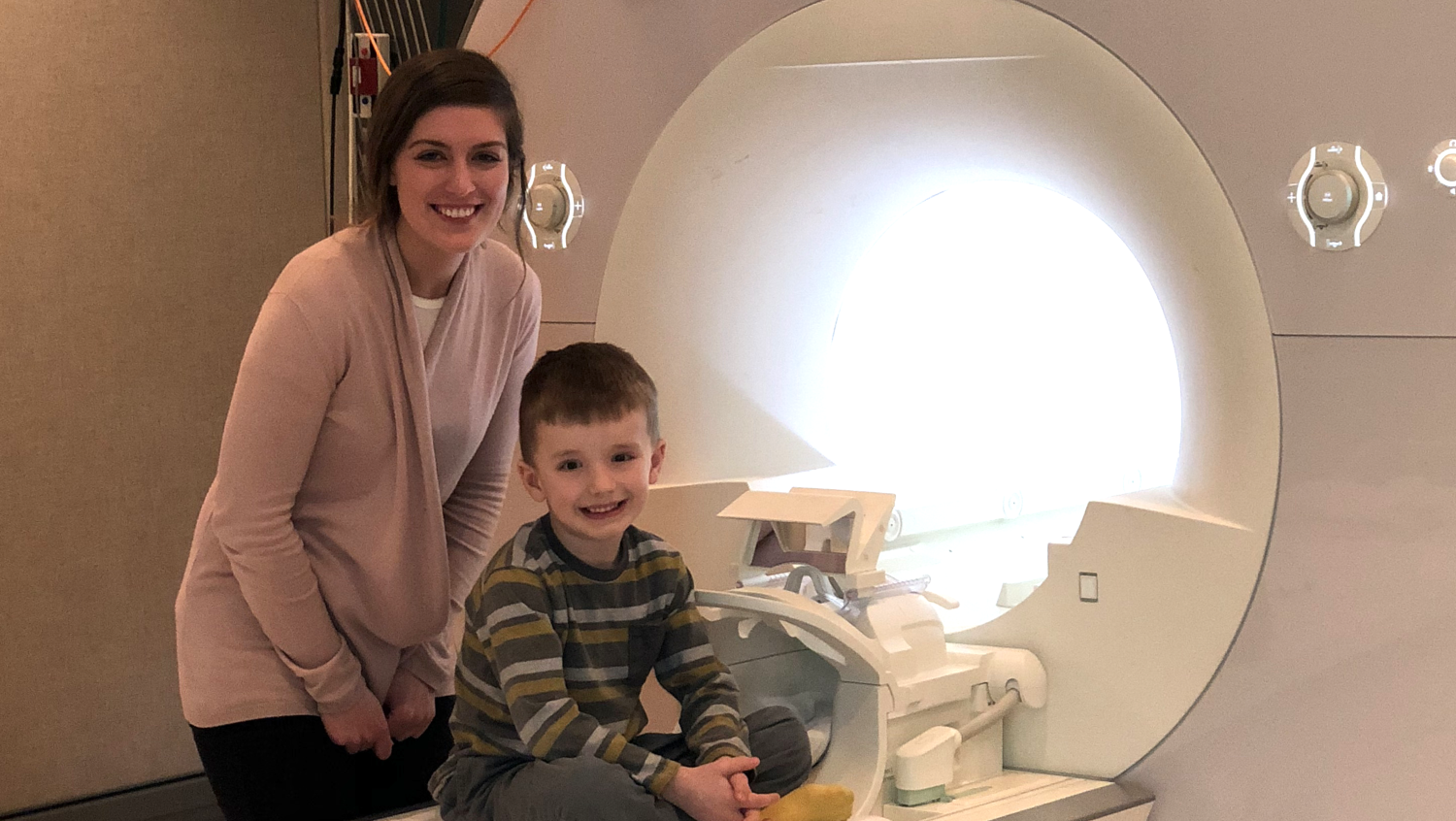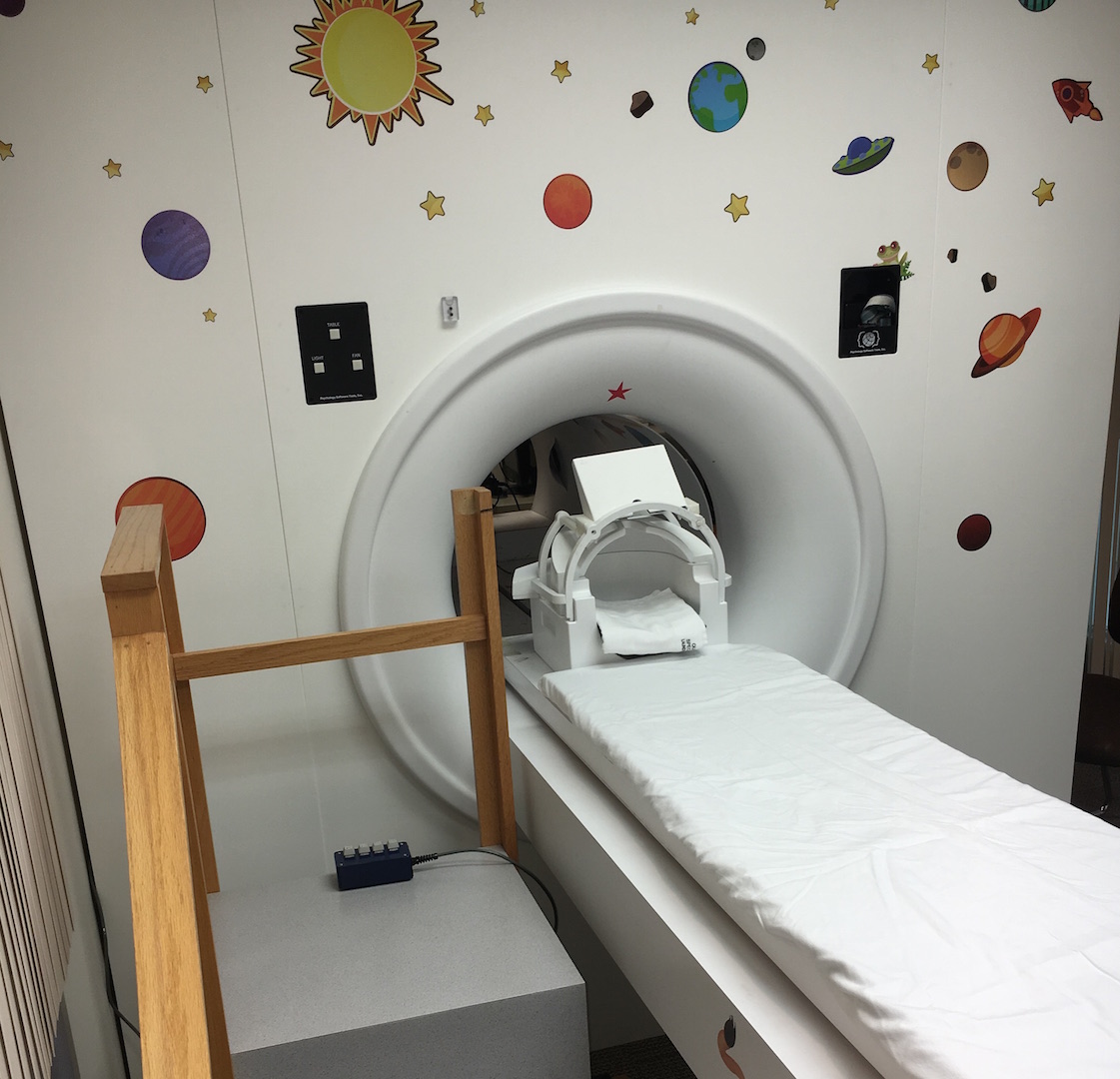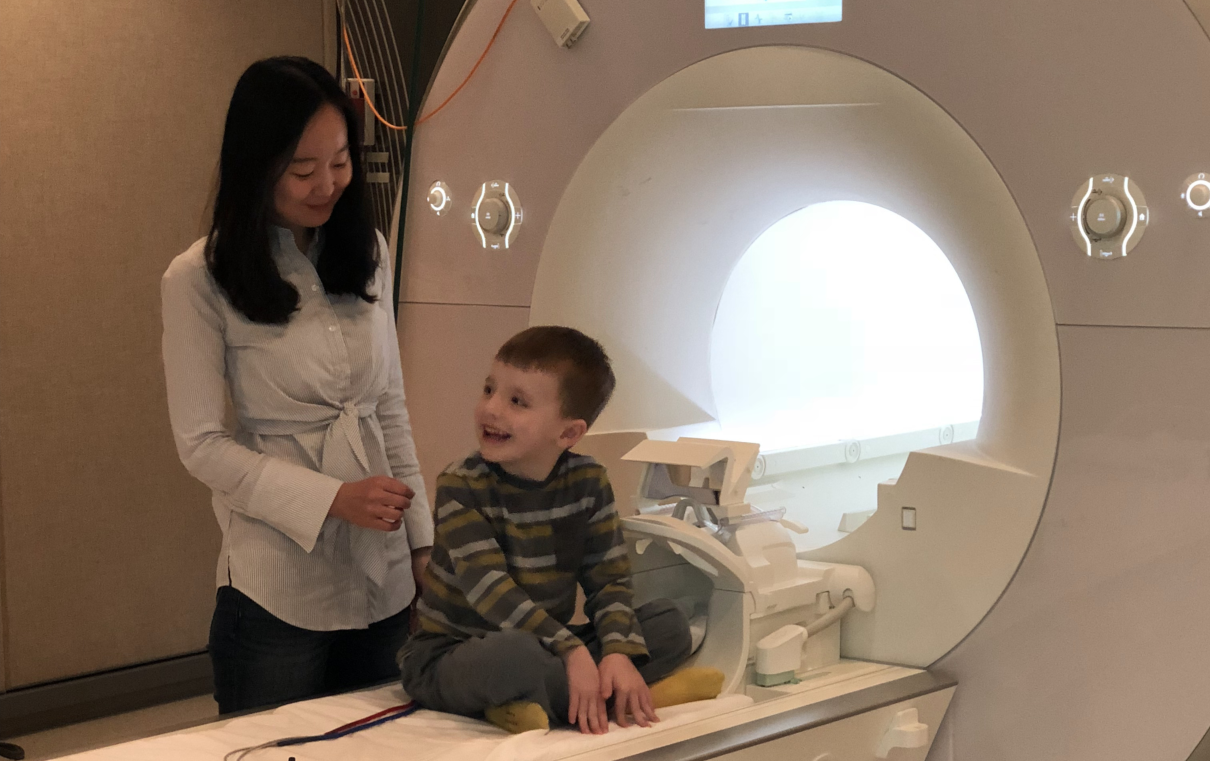p a r t i c i p a t e
Please see our list of ongoing studies below.

Precision Tics (UCSD)
This study seeks 7-17 year olds who are diagnosed with Tourette’s syndrome or have undiagnosed tics for at least one year, as well as 7-17 year olds without tics or a history of tics. The purpose of this research is to learn about brain activity in children with Tourette syndrome. The study comprises one clinical visit and 4+ (up to 10) MRI scan sessions scheduled at your convenience. During these visits participants will also be asked to perform different behavioral and cognitive tasks outside of the scanner while parents fill out online questionnaires. Participants will be compensated for their time. Contact us for more information at brainstudy@ucsd.edu for more information.
New Tics (WashU)
This study seeks children 5-10 years old who are experiencing a recent onset of tics. The purpose of this research is to compare those children who go on to develop Tourette syndrome with children whose tics resolve over time. Participants will undergo clinical assessments, perform behavioral and cognitive tasks, provide a saliva sample, and undergo MRI scanning. Participants will also be asked to return for annual follow-up visits to track the presence or absence of tics. Visit newtics.org or contact Emily Bihun for more information.
Longitudinal Tourette syndrome (WashU)
This study seeks 10-14 year olds with tics (including Tourette syndrome and Chronic/Persistent Tic Disorder). The purpose of this research is to look at how the brain changes over time in children/adolescents with tics. The study consists of an MRI scan, cognitive tasks, and clinical interviews now and again in two years. Participants will be compensated for their time. Visit the website or contact us for more information.
What to Expect
The study team member will meet you on campus. During your visit, questionnaires and other study documents will be completed. If this will be your first time in an MRI scanner, a mock scan may be completed. This is a simulation of the real MRI scan. It provides you with an opportunity to see the scanning environment and get a better understanding of what a real scan is like. We are then able to determine if you can tolerate lying still for the scan portion of the study.

The study team wants you to be comfortable. Please let us know how we can best accommodate you. We have snacks and drinks available to you. We try to be as flexible as possible with scheduling study visits. In addition, please remember that your participation is entirely voluntary and you may quit at any time or omit portions of the study. We are excited to have you participate!
MRI Scanning
If you are participating in a study that includes MRI scanning, you will be asked to change into MR compatible, disposable scrubs. Alternatively, you can bring an outfit of your own to be approved by the research assistant. The clothing needs to be 100% cotton (no synthetics), including underwear and socks. Remember to remove all metal from your body, including jewelry and hair accessories.
The MRI scans do not include radiation, sedation, or anesthesia. You will be required to fill out an MRI safety screening questionnaire to determine if it is safe for you to be scanned. The study staff will ensure that you are as comfortable as possible during your scanning session. Earbuds are provided to minimize the sound levels of the scanner and allow voice communication with the scanner operator. You are asked to lie flat on a padded surface with pillows, sheets, and blankets for comfort. You are able to inform the scanner operator of any discomfort during the scan.
During a portion of the scans, you may watch a movie. We have a fairly wide selection of movies from which to choose, you may bring your own movie (no Blu-rays), or choose something from Netflix.

External Resources
RadiologyInfo.org - RadiologyInfo.org tells you how various x-ray, CT, MRI, ultrasound, radiation therapy and other procedures are performed. It also addresses what you may experience and how to prepare for the exams. The website contains over 200 procedure, exam and disease descriptions covering diagnostic and interventional radiology, nuclear medicine, radiation therapy and radiation safety and is updated frequently with new information. All material on the RadiologyInfo.org website is reviewed and approved by experts in the field of radiology from the ACR and RSNA, as well as other professional radiology organizations.
This site was designed and coded by Andrew Van. View the source code here. Copyright (©) 2018 Andrew Van.